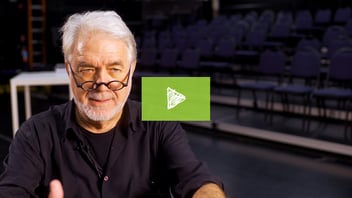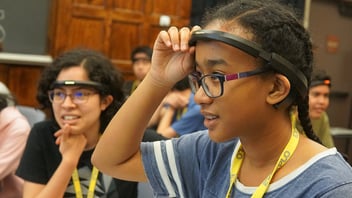Thomas Friedman: On Passion and Curiosity for Future Success

Thomas Friedman wrote a fascinating op/ed for the "New York Times" that highlights the essentiality of curiosity and passion in today's world. Friedman articulates the value of an Explo education, where curiosity is King, and passions are enthusiastically cultivated.
Renowned New York Times and Foreign Affairs columnist and triple Pulitzer Prize winning author, Thomas Friedman's, opinion for the Times called “It’s P.Q. and C.Q. as Much as I.Q” is profoundly relevant to the work we do with children, and why we do it in the way we do.
In the piece, Friedman relies on the notion that we need to consider living, learning, and working in the context of the “Great Inflection,” our societal shift from being connected to being hyperconnected, and its inevitable impact on every job and on society as a whole. He discusses two critical drives, Passion Quotient (P.Q.) and Curiosity Quotient (C.Q.), as together meaning more and mattering more for our individual and collective future successes than I.Q. alone.
The Great Inflection, defined by Friedman as the “mass diffusion of low-cost, high-powered innovation technologies — from handheld computers to websites that offer any imaginable service — plus cheap connectivity,” is undoubtedly “transforming how business is done.” Friedman asserts that The Great Inflection was masked in part by the Great Recession and life in a post-9/11 world. But as we emerge from that era (and indeed in order to emerge from that era), new skills are required: skills that necessitate P.Q. and C.Q. in a way that we have not seen before. Our future, Friedman contends, “will require a lot more entrepreneurship, a lot more startups, and a lot more individual risk taking.”
Friedman relies on opinions from top Microsoft technologist Craig Mundie, who asserts that “every boss now also has cheaper, easier, faster access to more above-average software, automation, robotics, cheap labor and cheap genius than ever before. That means the old average is over.” It’s simply not going to be enough to be book smart. New forms of intelligence are required as the game changes. Passion and curiosity are the key attributes to learning, innovating, and striving for individual success, no matter how that’s defined.
Simply put, at a time when Moore’s Law seems to govern nearly all spheres of life and living, all of us--especially young people--need to embrace and chase curiosity, find and pursue passions, and learn to leverage these drives for progress and achievement. It is imperative that we cultivate self-motivation, original thinking, and unique problem solving in ourselves and our children.



